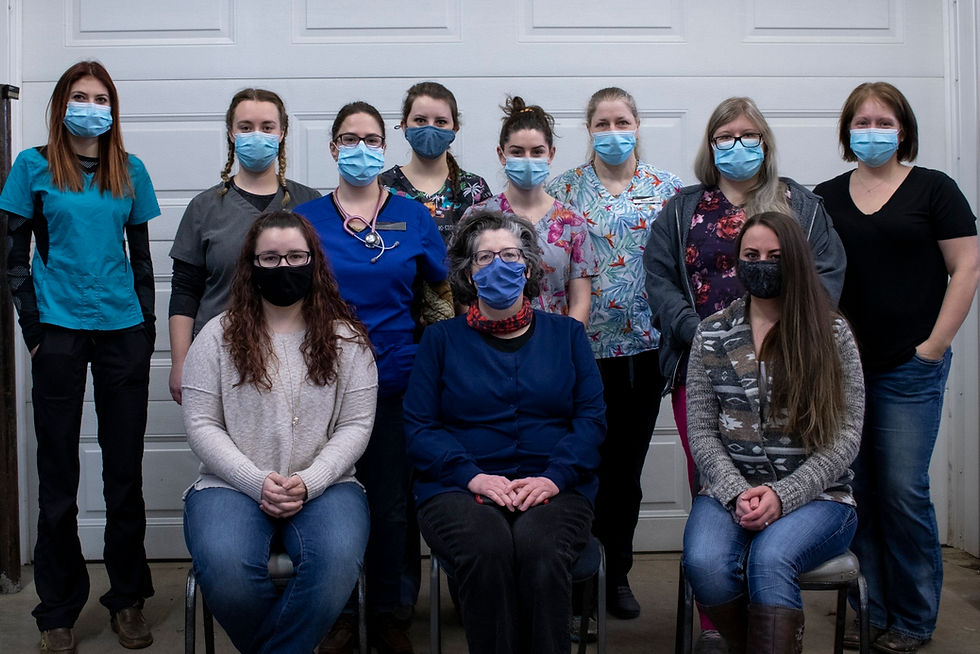Stettler vet explains importance of 'Not One More Vet' movement
- Mar 12, 2021
- 2 min read
Updated: Sep 11, 2021
StettlerLocal.com March 12, 2021 @10:24am

Student loan debt, financial stress, compassion fatigue, general exhaustion and emotional struggles are on the rise in the veterinary field. It’s estimated that 1 in 6 vets/vet techs have either committed or at least considered committing suicide. Those in the industry are 3.5 times more likely to die by suicide than members of the general public.
Cheryl Malin, Associate Veterinarian of Stettler Vet Clinic, recently spoke about the Facebook group gaining popularity 'Not One More Vet' (NOMV). The group allows veterinarians a place to share stories, advice, or concerns with other professionals in the industry. NOMV has grown to become a leading non-profit in the fight against veterinary suicide providing resources and grant program assistance to those struggling in the field.
“A thank you goes a long way. We appreciate the recognition.” Dr. Malin, Stettler Vet Clinic
Not just a struggle in student loans, vets also struggle on the practice side with juggling compassion versus business expenses. Most vets do everything they can to work with the owners that might not be financially able to pay for the treatments for their pets but it is often difficult to find the right balance. Pet owners often take to social media to voice issues and some vets have even cited attacks on social media as the leading factor of why they left their practice.
Dr. Malin states many in her industry also struggle with never “turning off”. They go home wondering if they could have done something different, or treated the situation differently. This is compounded by the fact that many vet clinics are often available twenty-four hours a day. A vet or vet tech could work 12-13 hour days then be on call.
The Alberta Veterinary Medical Association has programs and training to combat the problems the industry is facing. The association covers 3 sessions with a mental-health counselor and can help the member get further treatment if necessary. The training is noted as mental-health first aid and those who take it are trained to help recognize others who may be struggling.

Carson Ellis, Reporter



Comments